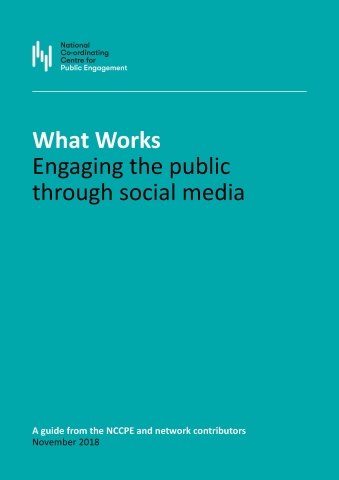
Social media has become a key way that people connect with one another. According to a 2016 statistical bulletin from The Office for National Statistics:
“Use of the internet for social networking continued to grow and has become part of many adults’ everyday lives, rising to 63% in 2016.”
The bulletin identified that social media use in the 16-24 age group was 91%, and in the 25-39 age group was 89%. Only in the 65+ age group was it used by fewer than half the public (23%).
Social media offers a particular opportunity for researchers who want to engage the public with their work. There are lots of benefits, including:
- Reach: It provides the platform to connect with a wider demographic of people than face-to-face events, it also allows those that work in remote locations to connect with the public Immediacy: You can engage with social media wherever there is an internet connection
- Dialogue: You can open up conversations with others to better understand how they are making sense of your research, or to input into your engagement ideas. It also enables audience–led discussion and debate – exposing you to other interests and ideas.
- Community building: It can enable you to develop a community of interest around your research or connect with communities who might be interested in your research
- Sharing: Your research, interests, opinions, questions, events, jobs and other opportunities, as well as learning from others Improving research: Through collaborating, consulting, listening and learning from others views of your research and hearing other points of view
- Gather data: Both quantitative and qualitative
- Raising awareness: Increasing your profile, networking, raising awareness of your research or project, socialising and keeping in touch with others and offering the opportunity for an interested public to find out about your research
However, there are some challenges to bear in mind before getting started!
- Whilst the set-up costs can be small, the time investment can be large depending on your goals – so consider how you will build your social media activity into your existing routine
- Posting on social media does not mean that you will access the groups you want to engage with – you will need to work hard to make connections, and get noticed
- Not everyone will welcome your content, so make sure you have a strategy for dealing with any negative feedback or trolls
That said, social media can be a really effective part of your public engagement toolkit, so read on to find out how it can work for you.